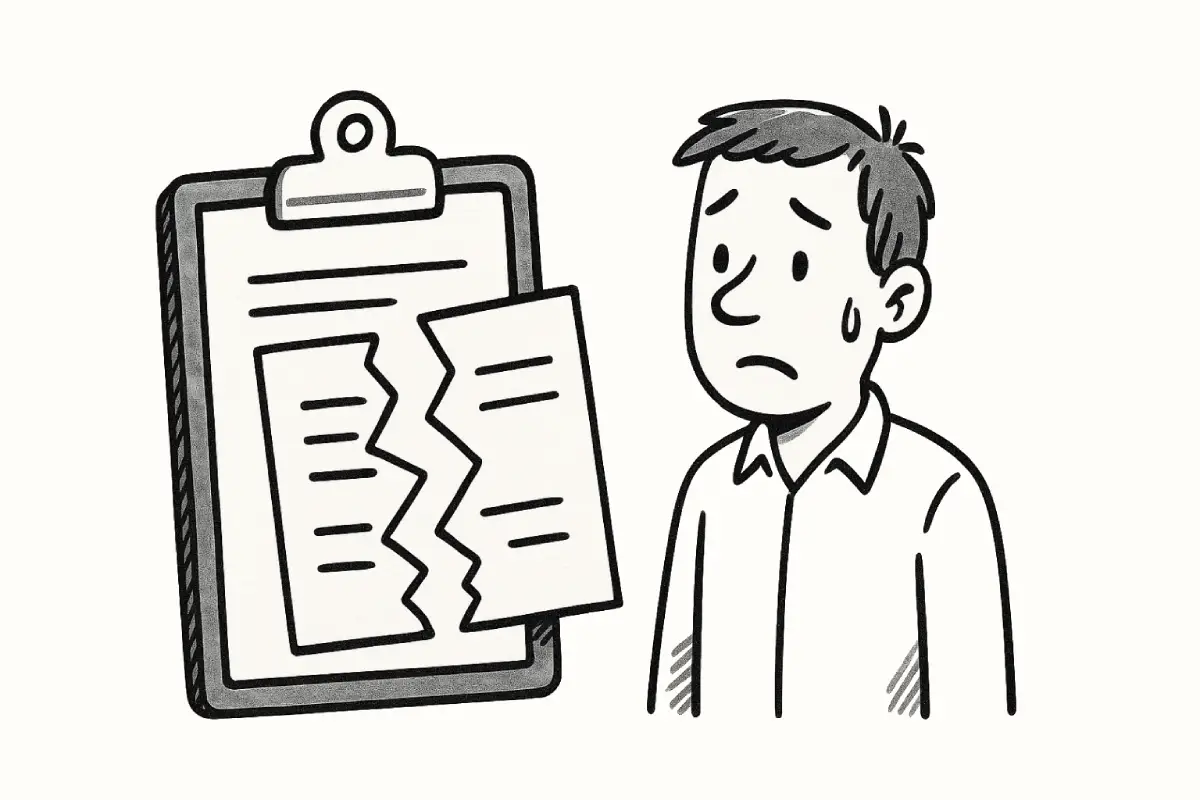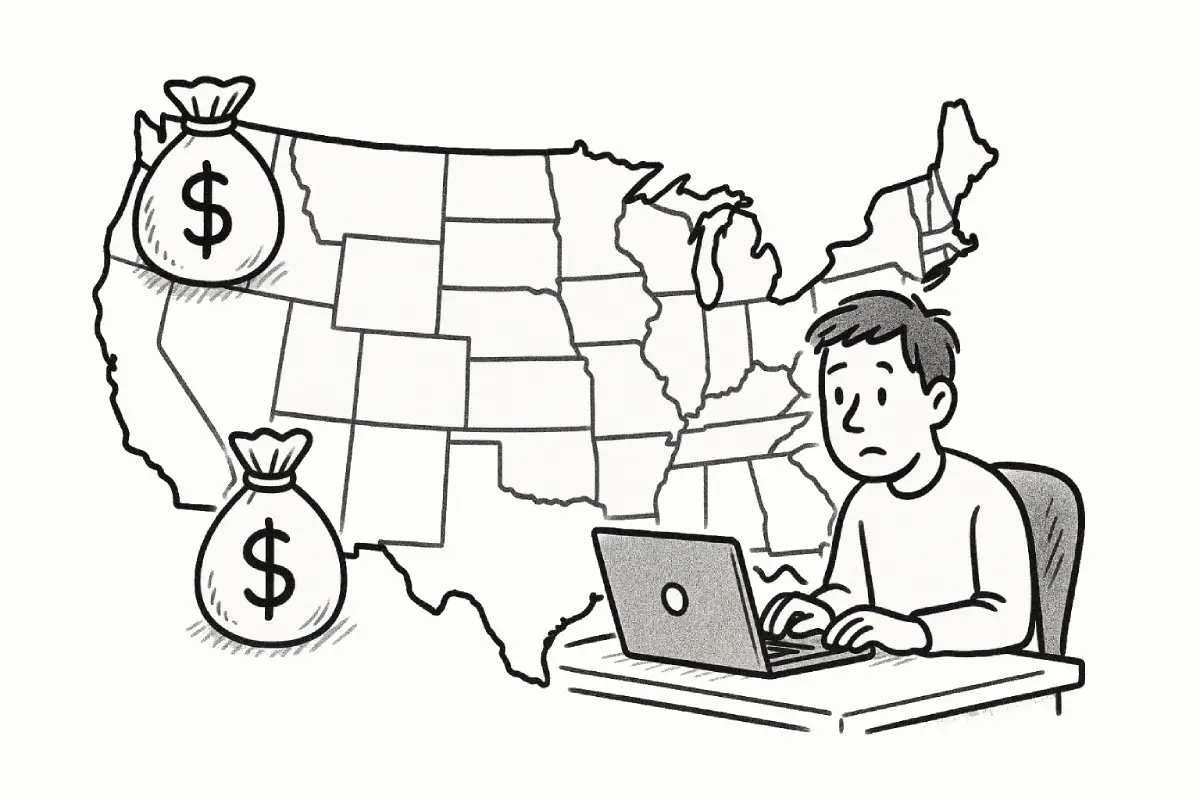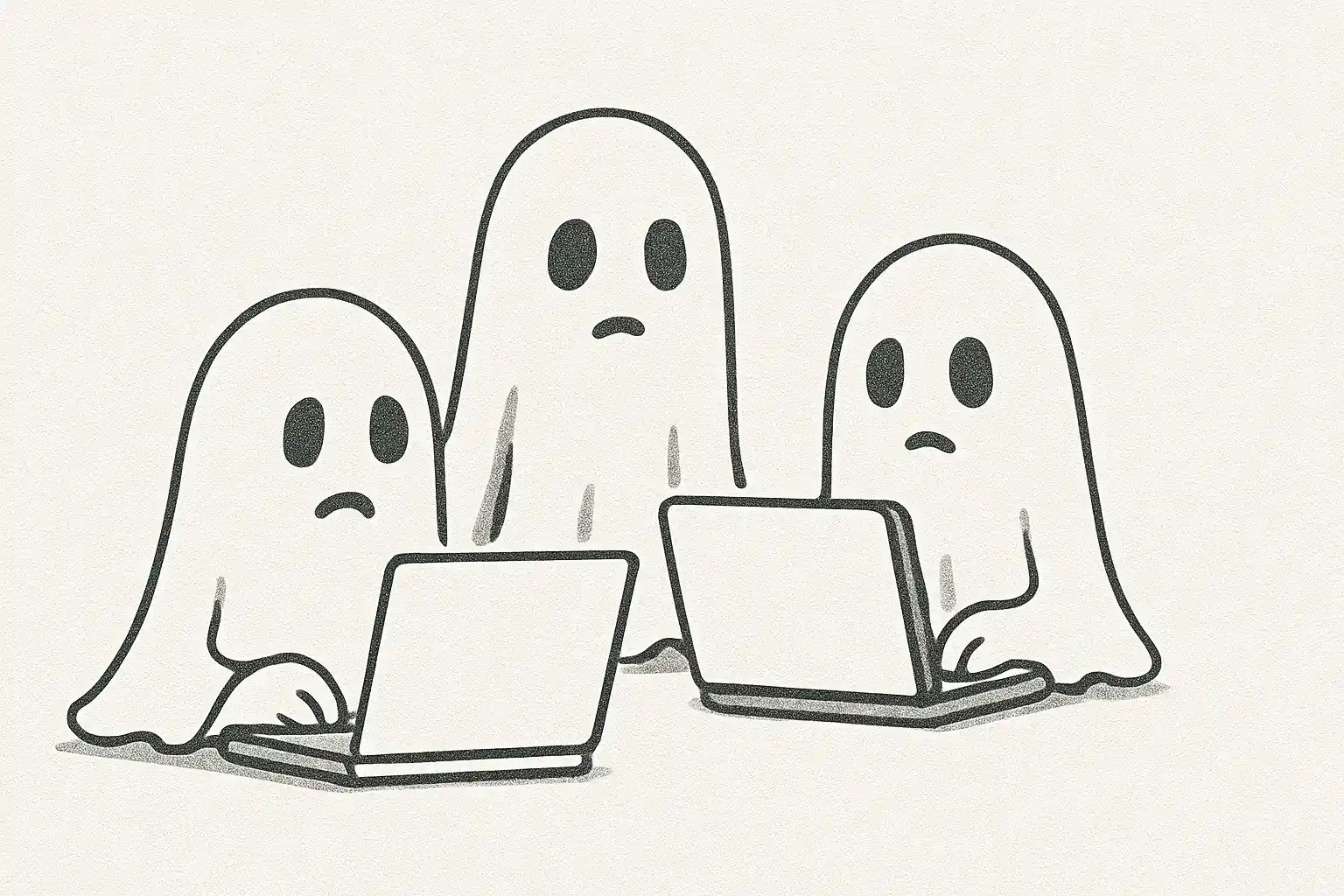The kind made over a lukewarm coffee in a bustling cafe, sealing a deal that could define the next six months of your life. There’s no paper, no ink, just a confident nod and a firm handshake. “Welcome aboard,” they say. And you feel it—a jolt of excitement. You’re in.
Terrifying, isn’t it?
This is the reality for a staggering number of people. Freelancers, gig workers, consultants, even folks sliding into what looks suspiciously like a full-time role. They’re all working without a net, operating on a foundation of trust that, in today’s world, feels both refreshingly old-fashioned and breathtakingly naive. It’s the professional equivalent of a trapeze act where you’ve been told the safety net is probably there, but no one’s actually checked.
We do it for speed. We do it to avoid a week of back-and-forth with some legal department. Sometimes, we do it because asking for a contract feels… well, a bit pushy. A bit like you don’t trust them. And in the honeymoon phase of any new working relationship, who wants to be that person?
The Seductive Illusion of the Handshake Deal
There’s a certain allure to the informal agreement, I get it. It feels agile, modern, and blessedly free of bureaucracy. It’s the language of startups that move fast and break things (occasionally, the thing they break is your legal protection). It’s a verbal pact that says, “We’re not corporate drones. We’re collaborators. We’re a team.”
For a while, this works beautifully. The work is exciting. The communication flows. The first payment might even arrive on time. You think to yourself, “See? Contracts are just a formality. A waste of trees.”
And then, one day, it isn’t beautiful anymore. The ground beneath your feet, which you thought was solid rock, starts to feel more like sand. And the tide is coming in.
It’s a gamble. A high-stakes bet where you’re wagering your financial stability on a handshake and a promise, which, let’s be honest, can be worth less than the paper they’re not written on.
This is the moment you realize that the absence of a contract isn’t a feature; it’s a bug. A catastrophic one. Because without that boring, jargon-filled document, a whole host of terrifying questions suddenly bubble to the surface.
So, What Exactly Are You? The Specter of “At-Will”
Before we even get to the horror stories, we have to figure out your place in this whole mess. In many legal systems, particularly in the United States, there’s a default setting for employment: “at-will.” It’s a cold, stark concept. It means that, absent a contract stating otherwise, an employer can terminate an employee for any reason—or no reason at all—as long as it’s not an illegal one (like discrimination). The employee, in turn, can also leave at any time.
It sounds fair, in a brutal sort of way. But when you’re the one being shown the door because your boss didn’t like your tie or because their nephew needed a job, it feels anything but. A contract can carve out exceptions to this rule, specifying conditions for termination, notice periods, and severance. Without one, you are, for all intents and purposes, disposable.
But wait, it gets murkier.
Employee vs. Independent Contractor: The Million-Dollar Question
This is the big one. The distinction that changes everything. Are you an employee they just haven’t gotten around to giving paperwork to, or are you an independent contractor, a business of one? The lines are so blurry they might as well have been drawn in fog.
Governments have tests for this, of course. The IRS in the U.S., for example, looks at a bunch of factors that boil down to one central theme: control.
- Behavioral Control: Do they tell you how to do your work? Do they mandate specific tools, processes, or working hours? If you’re being told to be at a specific desk from 9 to 5 and attend mandatory team meetings, you’re probably walking and talking like an employee.
- Financial Control: Do they control the business aspects of your job? Do they reimburse your expenses? Do they provide the essential equipment (like a company laptop)? Are you paid a regular salary, or do you invoice them for your work? The more you look like a self-contained business entity, the more you lean toward “contractor.”
- Relationship of the Parties: Is there a written contract describing the relationship? (Whoops.) Are you receiving benefits like health insurance or paid time off? Is the work you’re doing a key aspect of the regular business of the company?
Why does this matter so profoundly? Because the answer determines a universe of rights and responsibilities. An employee gets legal protections. Minimum wage, overtime pay, worker’s compensation, unemployment benefits. The employer has to withhold and pay payroll taxes.
An independent contractor? You get none of that. You are your own safety net. You are responsible for your own taxes (hello, self-employment tax!), your own insurance, your own retirement. You are, in the eyes of the law, a vendor. Like the company that supplies the office coffee.
And here’s the kicker: companies have a massive financial incentive to classify you as a contractor. It saves them a fortune. And without a contract clearly defining your status, they often hold all the cards in making that determination, at least until you decide to challenge it. Which is a fight you probably don’t want.
The Ground Beneath Your Feet Starts to Crumble: The Big Risks
Okay, let’s get into the nitty-gritty. The stuff that keeps people up at night. When you work without a contract, you are willingly stepping into a minefield. Here are some of the most common explosions.
The Phantom Paycheck
This is the classic. The job starts with a vague agreement on payment. Maybe it’s a project fee. Maybe it’s an hourly rate. But the specifics are fuzzy.
Then comes the scope creep. That little monster. The project that was supposed to be ten web pages is now fifteen. The “quick revision” turns into a complete overhaul. And because there’s no signed Scope of Work document to point to, pushing back feels difficult. You don’t want to seem difficult. So you do the extra work. For free.
Then comes the invoicing. You send your bill. And you wait. And wait. You send a polite follow-up. They reply, “Oh, sorry, things are crazy right now! We’ll get to it next week.” Next week becomes next month. You start hearing excuses that would be comical if they weren’t so infuriating.
- “We’re just waiting on the client to pay us.” (Not your problem.)
- “Our accounting department only processes payments on the third Tuesday of a month with a full moon.” (Probably not true.)
- Crickets. (The most common response.)
Chasing money is more than just a financial burden; it’s an emotional vampire. It saps your energy, your confidence, and your creativity. A proper contract would have stipulated payment terms, late fees, and a clear invoicing schedule. Your handshake deal has left you as a part-time debt collector for your own income.
Your Brilliant Idea… Isn’t Yours Anymore
This one is a special kind of nightmare, particularly for creatives, developers, and inventors. Who owns the work you produce?
You pour your heart and soul into a piece of code, a brilliant marketing campaign, a stunning design. You assume that if they don’t pay you for it, it’s still yours. Right?
Wrong. It’s incredibly complicated.
Without a contract that explicitly outlines the transfer of Intellectual Property (IP), you’re in a legal gray area the size of Texas. In many cases, if a company pays you for work, they can argue they have an “implied license” to use it. Or, if they successfully classify you as an employee, the work you did might fall under “work for hire,” meaning they own it from the moment of its creation.
Imagine seeing the code you wrote power an app that makes millions, while you’re still fighting to get paid for your last invoice. Imagine the logo you designed plastered on billboards, with zero credit or additional compensation. A contract would have handled this with a few standard clauses on IP transfer, usually stipulating that the rights transfer upon final payment. Without it, you might have just given away your genius for free.
The Sudden Goodbye
You’re working on a project. Things seem to be going well. Then one morning, you can’t log in to the company Slack. Your email access is denied. You call your main contact. It goes straight to voicemail.
You’ve been ghosted.
With no contract, there’s no requirement for a notice period. No severance pay. No formal off-boarding process. The project can be “paused” indefinitely, which is just a cowardly way of canceling it without telling you. You’re left with a half-finished project, a hole in your schedule, and a complete loss of income you were counting on. It’s brutal and, unfortunately, shockingly common.
But You’re Not Completely Powerless: Finding Your Rights in the Ether
Okay. It’s bleak. But it’s not hopeless. Just because you don’t have a single, signed PDF doesn’t mean you have zero rights. The law, in some cases, is more sensible than you’d think. You just have to know where to look.
The Power of the Digital Paper Trail
Here’s your lifeline. In the absence of a formal contract, your emails, text messages, Slack DMs, and even recorded Zoom calls can collectively become the contract. Courts are increasingly recognizing that an agreement doesn’t have to be in one place. A series of communications that shows an offer, an acceptance, and a “meeting of the minds” on key terms can be legally binding.
This is why you must, must, must become a master of the follow-up email.
After every important conversation, send a friendly, concise email summarizing what was discussed and agreed upon. “Hi Bob, just to confirm our chat this morning: I’ll be handling the social media strategy for Project X for the next three months, at a rate of $4,000 per month, invoiced on the 1st. I’ll start on Monday. Let me know if I’ve missed anything!”
This isn’t being pushy. It’s being professional. If Bob replies “Looks great!”—boom, you have a written record. If Bob doesn’t reply and lets you start work on Monday, that’s called tacit acceptance. His silence, combined with his action of letting you proceed, implies agreement. It’s not as good as a signature, but it’s a hell of a lot better than nothing.
Implied Contracts and Verbal Agreements: A Legal Minefield
Yes, verbal contracts can be legally binding for many types of work. The problem? Proving they exist. It devolves into a messy “he said, she said” situation that makes judges and lawyers sigh.
More powerful is the concept of an “implied contract.” This is a contract that is created by the actions and conduct of the parties involved. If a company sends you work every week, you do the work, and they pay you for it every Friday—for months—you’ve established a course of conduct. A pattern. This pattern can create an implied contract with terms based on that established behavior. If they suddenly stop paying you for work you’ve completed, you can point to this history as evidence of your agreement. For more information on this, resources like the U.S. Department of Labor provide guidance on wage rights.
Know Your Local Laws (This is Not a Drill)
I cannot stress this enough: labor laws vary wildly. From state to state, from country to country. What constitutes an employee in California is different from in Florida. Freelancer protection laws that exist in New York City don’t exist in most other places. The Freelancers Union, an advocacy group, often has up-to-date information on local ordinances that can be a lifesaver.
Don’t assume. Research. Understand the default rules where you live and work. It’s the only way to know what kind of ground you’re standing on.
The Art of Defensive Working
So what’s the takeaway? The best-case scenario is always to get a contract. Always. Even a simple, one-page agreement is better than nothing.
But if you find yourself in a situation where that’s just not happening, you have to shift your mindset. You are no longer just a writer, a designer, or a consultant. You are also your own risk manager.
- Be the Follow-Up King/Queen: Document everything. Every conversation, every change request, every promise. Create your own paper trail.
- Invoice Early, Invoice Often: Don’t wait until the end of a massive project to bill. For longer projects, insist on milestone payments (e.g., 25% upfront, 25% at the halfway point, 50% on completion). This minimizes your risk. If they balk at paying upfront, that’s a huge red flag.
- Never Transfer Finals Before Final Payment: For deliverables like code, designs, or documents, send watermarked previews or low-resolution versions for approval. Do not hand over the final, high-resolution, usable files until the final invoice is paid. Full stop.
- Trust Your Gut: This is the least technical but most important piece of advice. If a potential client seems evasive, makes grandiose promises that sound too good to be true, or pressures you to start immediately without nailing down the details… walk away. There will be other jobs. There is only one you, and your sanity is not worth the paycheck they’re dangling.
Working without a net forces you to be more vigilant, more organized, and more assertive than you might be comfortable with. It’s exhausting, frankly. But the alternative—being exploited, underpaid, or left with nothing—is so much worse.
The ultimate question, then, isn’t whether you can work without a contract. Thousands of people do it every day. The real question is, once you truly understand the risks, why would you ever want to?
You might also like: Remote Apprenticeships: The Next Big Thing?









